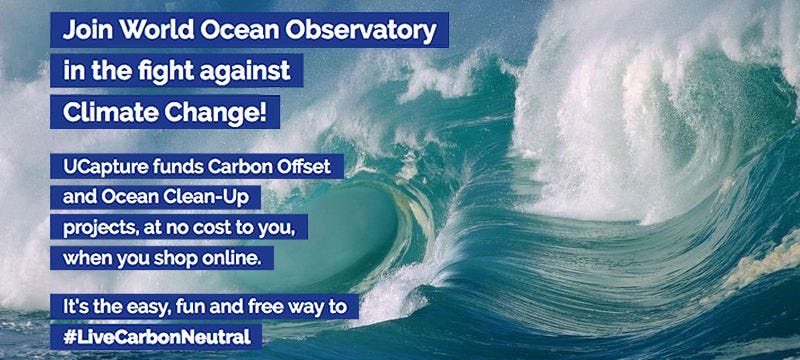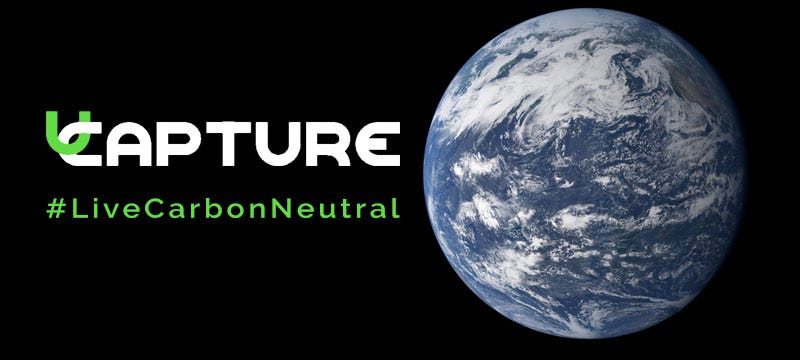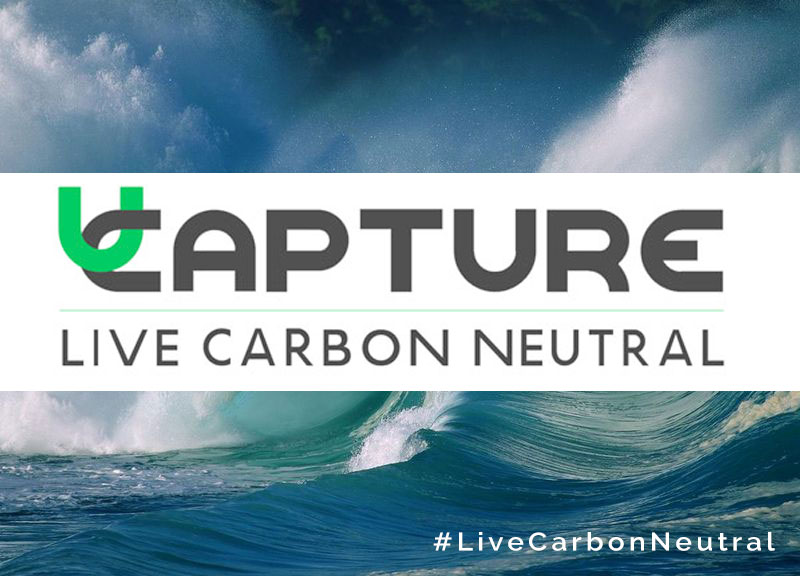Remember some years back as we first realized the impact of emissions and carbon consumption on all aspects of our lives? There was a move to create systems to offset personal use associated especially with airline travel. Whatever happened to that initiative? It disappeared essentially as a function of scale — the amount of offsets purchased never amounted to a critical number, and the inefficiency of reaching and tracking individuals further aggravated the problem.
Larger carbon markets took the place in the public mind, exchanges that catered to big companies and big volumes, but they too failed or were compromised by market forces, tax policies, and the lack of any coherent cohesive pressure to reward companies for purchase.
But there is real prospect here.
 LEARN MORE about how to offset your carbon footprint
LEARN MORE about how to offset your carbon footprint
World Ocean Observatory is announcing its engagement with two partner organizations — South Pole, a London-based company that manages large corporate offset purchases and invests funds in projects that are certified legitimate by an extensive list of performance criteria and project evaluation; and UCapture, a New York-based company that has contracted over 4,500 large and small online retailers and travel sites to allocate a percent of every sale toward company offset commitment. As a buyer, your purchase combines the power of every other buyer to guarantee offset purchase at no increased cost to you.
Here’s how it works: you create a user profile and enroll with UCapture; you agree to add an extension to your web browser; then when you visit online retailers you’ll be given the option to offset via your purchase. Your transaction continues with no fee or increase while your purchase generates support for sustainability and offset projects around the world. Our first affiliate project is a reforestation and watershed protection initiative in the Andes of South America, identified and certified by SouthPole.
What do the retailers get? Each seller commits to an offset strategy using this system, allocating the percentage of each sale to a collective fund that then purchases large offset volume at a scale that matters — both to the retailers and to the success of offsets as a strategy designed to meet the challenge of climate impacts and environmental consequences. Additionally, retailers can incorporate the collective value into its accounting AND advertise that as making a substantive contribution to climate mitigation.
This is not a perfect solution. It does not address the point-source problem of carbon consumption that requires yet unrealized commitments from the fossil fuel industry and all its correlative dependents. It does reduce their consumption level in part, enables their participation in a system previously ignored, provides a means by which customers can make an effective contribution toward conservation, and enables a scale of transaction large enough to work for everyone involved.
It may be easy to dismiss this idea as regressive or irrelevant. But it is a system that revives and enables the social response, rewards the small organizations worldwide on whom we must rely to counter consequences in the field, and builds a system of financial rewards that supports responsible conservation and sustainable practices. In some part, everyone wins something: the corporations are engaged, the public is encouraged, the organizations are identified and supported to far greater extent, local workers are employed and their communities financially enhanced, and the collective response of individuals and companies by the thousands begins to support some serious progressive action toward a carbon-diminished future.
Full disclosure: any participant in the program that enters through a World Ocean Observatory introduction generates an increment of the offset value on our behalf. We offer all of our educational services at no cost, and we too must seek financial support — from foundations and individuals dedicated to the future of the sustainable ocean. This carbon offset initiative uses the power of good to make good better. If you want to learn more or to sign up, visit the carbon offset link on our homepage: world ocean observatory dot org. In just one step you will be enrolled and contributing through everything you purchase online. I did it: a bought a new jacket and airline tickets last week. It went well, felt right, and suggested a new way that each of us can make a difference through everyday action in support of the future of the sustainable ocean. Why not give it a try?”
- - -




